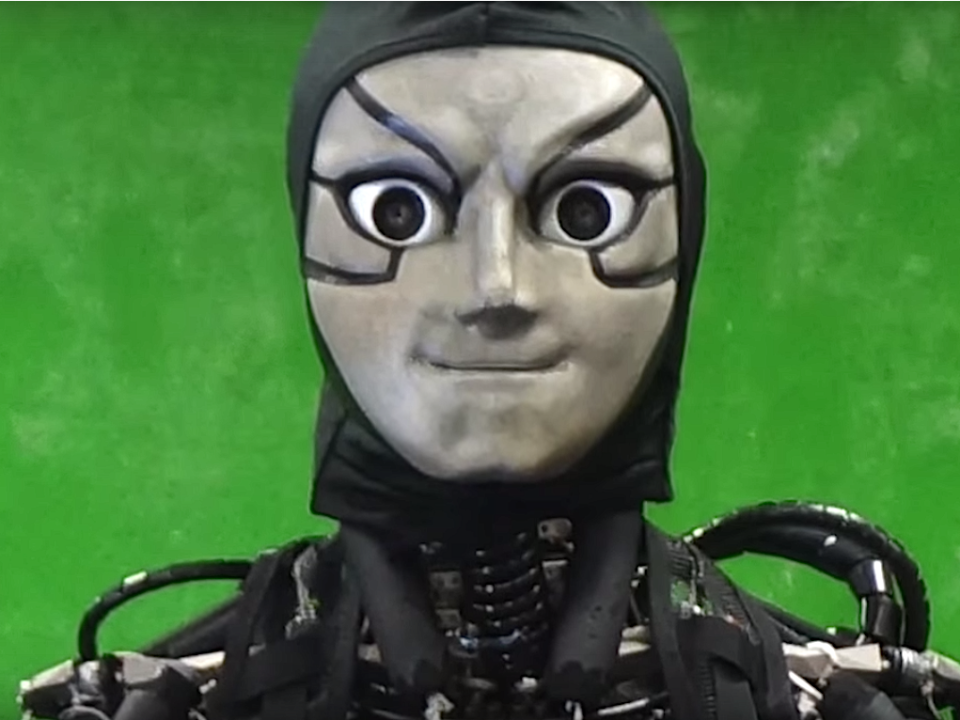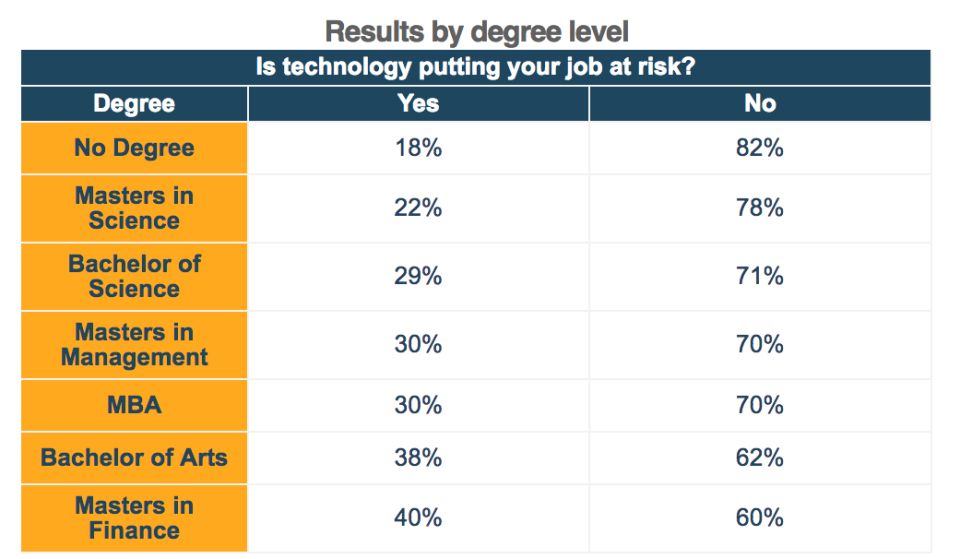The least educated people in the world are in denial about how robots will take over their jobs

YouTube
This fellow wants your job.
The least educated people in the professional world are also the least concerned about the risk of technology taking their jobs, according to a new survey released by salary benchmarking site Emolument.
Emolument surveyed 900 people working across “several industries and countries” and found that those with no university education were least likely to think that technology is a risk to their job. Just 18% of people with no degree answered yes when asked: “Is technology putting your job at risk?”
On the other hand, 40% of people with a masters degree in finance answered yes.
Here’s Emolument’s chart showing different answers by degree level:

Emolument
While those with the least education may not be particularly worried about losing their jobs to robots, they should be.
Recent research from the University of Oxford’s policy school, the Oxford Martin School titled “Technology at work: V2.0,” concluded that 35% of jobs in the UK are at risk of being replaced by automation, 47% of US jobs are at risk, and across the OECD as a whole an average of 57% of jobs are at risk. In China, the risk of automation is as high as 77%.
As my colleague Oscar Williams-Grut wrote earlier in the year “most of the jobs at risk are low-skilled service jobs like call centres or in manufacturing industries.”
Another report released at 2016′s annual World Economic Forum conference argued that automation “will lead to a net loss of over 5 million jobs in 15 major developed and emerging economies by 2020,” also saying that the majority of jobs will be lost by low skilled workers, generally with lower levels of education.
Along with looking at how people with different levels education perceive the threat of technology to their jobs, Emolument also looked at different job areas, finding that those in financial services — where computer programmes and algorithms are now doing much of the work — are most worried, while engineers are the least.
Check out the table below:

Emolument
NOW WATCH: Wells Fargo CEO John Stumpf is retiring, effective immediately
The post The least educated people in the world are in denial about how robots will take over their jobs appeared first on Business Insider.

 Yahoo Finance
Yahoo Finance 
